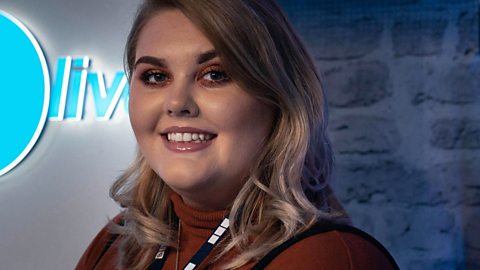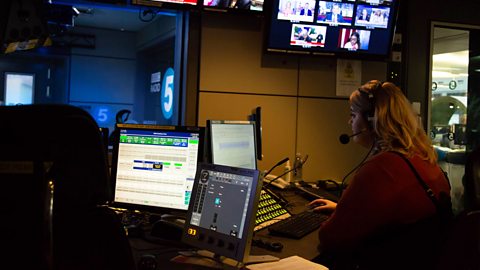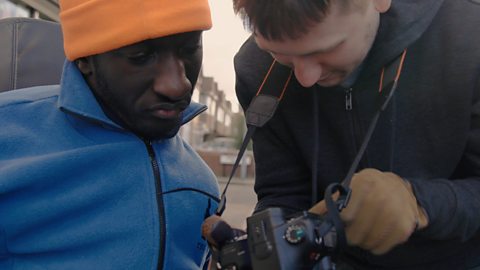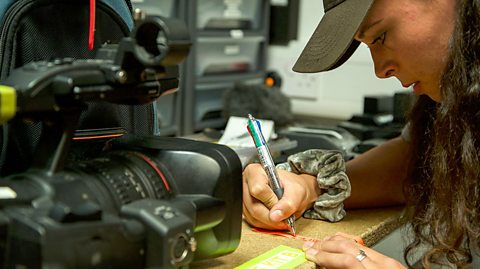Meet Molly. She's 22 and grew up in Sheffield. Find out about her job as a broadcast assistant for В鶹ԼЕД 5 Live in Salford. Part of our Bitesize world of work series.

The effort that you put in now definitely pays off.
What is your job?
My job is basically what it says on the tin: I assist with broadcasts on the radio.
I work with the on-air team to make sure everything is running smoothly. I also work with the planning team and find contributors to the shows. Day-to-day I use a lot of different software and databases to find contributors, get in touch with them, write up and edit content.
Although I work in radio, I also edit videos and digital content for social media.

Can you explain what skills you need to do your job?
First, you need good communication skills. I have to work with the public, guests and the on-air team.
We're a close team so good teamwork skills help us to make sure the broadcast runs as it's supposed to.
Time management is also really, really important in my job – if your programme runs over there are repercussions for the following programmes.

What subjects do you draw on in your job as a broadcast assistant?
At secondary school I loved English Language and Literature. English has really helped me in this job because being able to write and speak effectively is so important.
I took History at GCSE and it taught me how to build an argument, which is a key skill you need as a journalist.
I came to MediaCity, which is where I work now, on a school trip when I was 13. From that day I knew this job was for me!

Top tips
- Get experience. At university, I volunteered at my local radio station and then I got a job there so I could learn about the industry
- Be creative. Think about social media as an online CV – use it to show off your skills
- Be determined. If you want a career in the media, don't let anything put you off. If you want it, you can do it!

What to expect if you want to be a radio broadcast assistant
- Radio broadcast assistant average salary: ВЈ16,000 to ВЈ29,000 per year
- Radio broadcast assistant typical working hours: 39 to 41 hours per week
What qualifications do you need to be a radio broadcast assistant?
You could get into this role via a university course, a college course (such as a Level 2 certificate, a Level 3 Diploma or a T-level in Media, Broadcast and Production - England-only, from Sept 2023) or an apprenticeship. You can also volunteer as employers will expect you to have practical experience. You can do this by contacting community, hospital or student radio stations.
Sources: LMI for All, National Careers Service,
This information is a guide and is constantly changing. Please check the website for the latest information and all the qualifications needed and the for more on T-levels.
For careers advice in all parts of the UK visit: , , and .

Find work experience placements with Workfinder.
Tips and advice
Help with interviews, writing a CV and all things work experience related.

Isaac: filmmaker and vlogger. video
Isaac makes films and vlogs about his life, editing with his feet!

Tamsin: camera operator
Tamsin helps to make films and TV shows.

Rosie: science journalist
Rosie's the editor for the science section of a student-run magazine.
